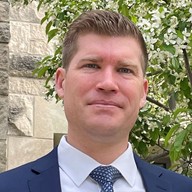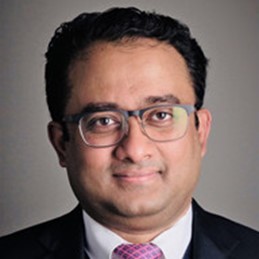Ready-to-Administer IV Push Products: A Multidisciplinary Approach to Safety, Cost-Effectiveness, and Patient Outcomes in Health System and Perioperative Settings

|
ACPE Activity Number: 0204-0000-23-411-H04-P |
Activity Overview
This educational activity will examine the landscape of considerations regarding ready-to-administer (RTA) IV push products compared with traditional IV vial products. The holistic costs of waste, taking into account cost-effectiveness data in the selection and implementation of RTA IV push products will also be discussed. New evidence regarding perioperative opioid use and associated adverse clinical outcomes will be presented along with strategies for reducing product waste, organizational costs, and postoperative adverse events.
Please note, this activity was presented live on December 5, 2023 as part of the ASHP 2023 Midyear Clinical Meeting & Exhibition. You can only claim credit once for this activity; live or home study.
Accreditation

Target Audience
This activity was planned to meet the educational needs of pharmacists who practice in hospitals and health systems, including chief pharmacy officers, pharmacy leaders and administrators, medication safety and compliance officers, and procurement managers.
Learning Objectives
After participating in this CPE activity, learners should be able to:
- Examine peer-reviewed literature covering various use considerations for manufacturer-prepared ready-to-administer (RTA) and traditional IV vial products.
- Discuss the holistic costs of waste, focusing on incorporating cost-effectiveness data in the selection and implementation of RTA IV push products in health-systems.
- Interpret new evidence regarding perioperative opioid use and associated adverse clinical outcomes.
- Identify strategies to reduce product waste, organizational costs, and postoperative adverse events.
Faculty
John B. Hertig, PharmD, MS, CPPS, FASHP, FFIP, Activity Chair
Associate Professor and Chair Department of Pharmacy Practice
Butler University
Indianapolis, Indiana

John B. Hertig, PharmD, MS, CPPS, FASHP, FFIP is Chair and an Associate Professor of Pharmacy Practice in the Butler University College of Pharmacy and Health Sciences (Indianapolis, USA). Dr. Hertig lectures around the world and publishes on a variety of patient safety, leadership, administration, health policy topics. He serves as an Associate Editor for the Journal of Medicine Access, and his extensive research program is designed to enhance the safety of the medication use process, while using evidence to inform patient advocacy efforts. Dr. Hertig is a Member of the United States Food and Drug Administration Drug Safety and Risk Management Advisory Committee. He holds other national and international appointments, including with the International Pharmaceutical Federation, where he is Treasurer for the Hospital Pharmacy Section, and as Past-President of the Board of Directors for the Alliance for Safe Online Pharmacies – Global (ASOP), where he leads efforts to reduce the patient safety impact of illegal and counterfeit online drug distribution worldwide. He was awarded the ASOP Global Patient Safety Champion Award in 2018. Dr. Hertig received his Bachelor of Science in Pharmaceutical Sciences and Doctor of Pharmacy degrees from Purdue University (USA). He completed a PGY1 pharmacy practice and PGY2 health-system pharmacy administration residency at The Ohio State University Medical Center while also obtaining a Masters degree in Health-System Pharmacy Administration from The Ohio State University (USA).
Satya Krishna Ramachandran, MD
Staff Anesthesiologist
Associate Professor of Anesthesia
Program Director, Fellowship in Perioperative Quality and Safety
Harvard Medical Faculty Physicians
Boston, Massachusetts

Relevant Financial Relationship Disclosures
In accordance with our accreditor’s Standards of Integrity and Independence in Accredited Continuing Education, ASHP requires that all individuals in control of content disclose all financial relationships with ineligible companies. An individual has a relevant financial relationship if they have had a financial relationship with an ineligible company in any dollar amount in the past 24 months and the educational content that the individual controls is related to the business lines or products of the ineligible company.
An ineligible company is any entity producing, marketing, re-selling, or distributing health care goods or services consumed by, or used on, patients. The presence or absence of relevant financial relationships will be disclosed to the activity audience.
The following persons in control of this activity’s content have relevant financial relationships:
- John B. Hertig – Fresenius Kabi: Principal Investigator; Vifor Pharma: Consultant
- Satya Krishna Ramachandran – Fresenius Kabi: Principal Investigator
All other persons in control of content do not have any relevant financial relationships with an ineligible company. As defined by the Standards of Integrity and Independence in Accredited Continuing Education definition of ineligible company. All relevant financial relationships have been mitigated prior to the CE activity.
Methods and CE Requirements
Activities can be completed in any order. Each activity consists of audio and video, and an evaluation. Learners must review all content and complete an evaluation to receive continuing education credit for each activity.
Follow the prompts to claim, view, or print the statement of credit within 60 days after completing the activity.
Important Note – ACPE 60 Day Deadline
Provided by ASHP
Supported by an educational grant from Fresenius Kabi USA, LLC
